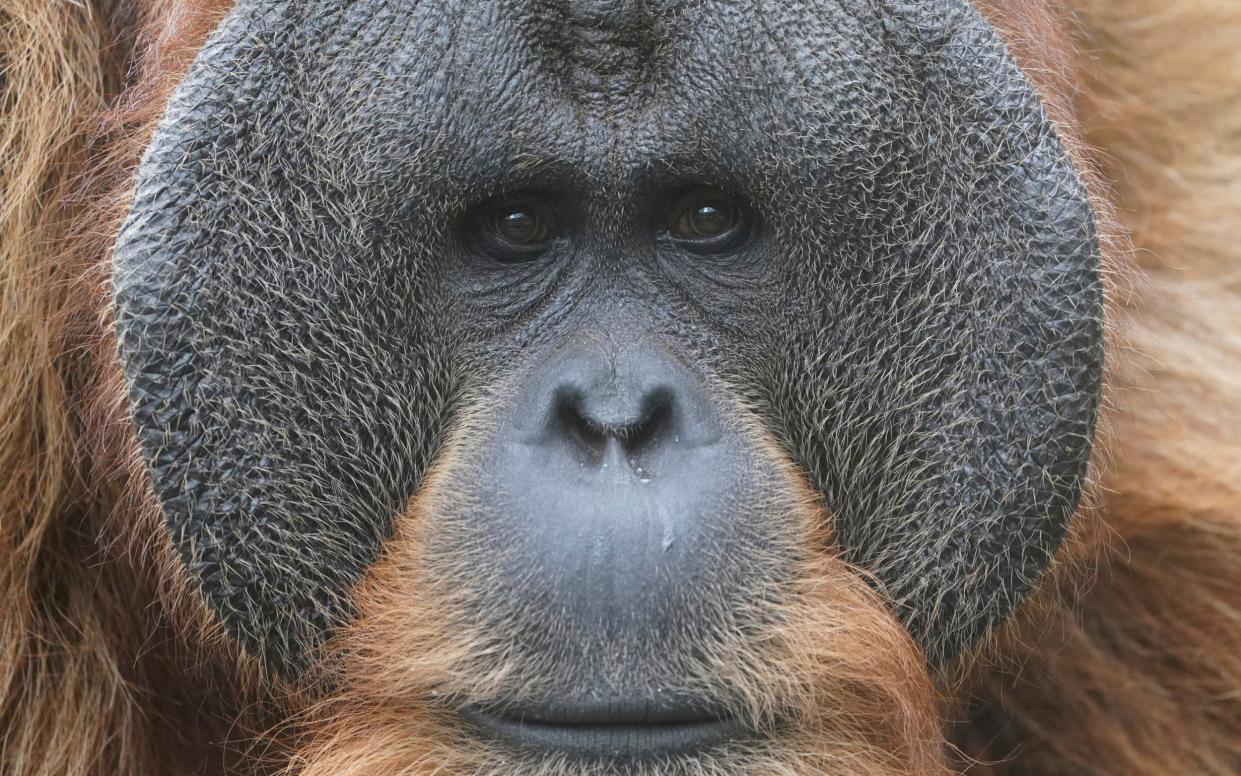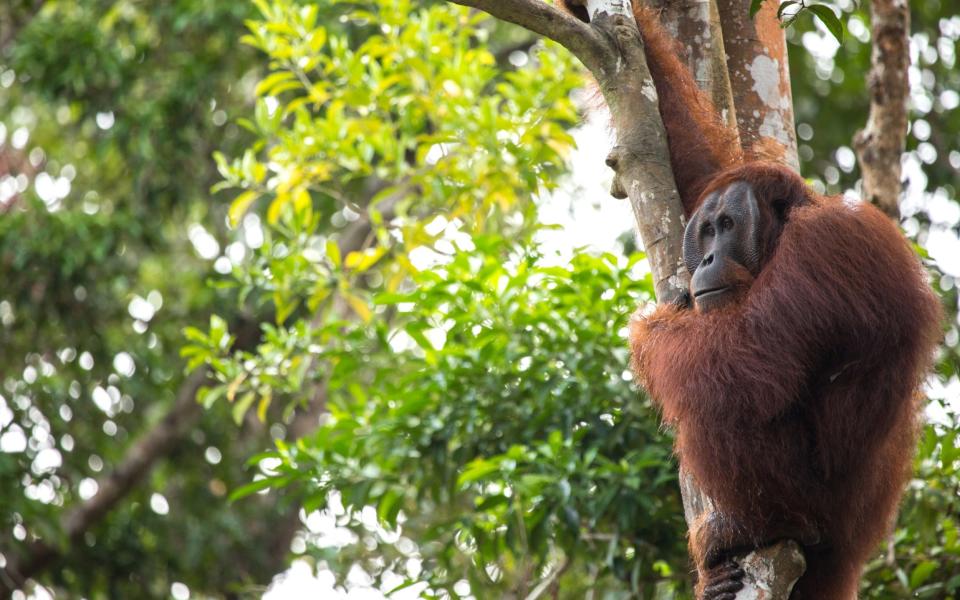Consonants emerged ‘when human ancestors moved from jungle to plains as vowels don't travel well’

Consonants emerged when human ancestors relocated from the jungle to live on open plains, where the sound of vowels do not carry as far, a new study suggests.
The ability of humans to vocalise a wide range of sounds is unique and not even shared by close relatives such as gorillas, bonobos and chimpanzees, which tend to communicate in vowel-based grunts and calls.
Orangutans produce both voiceless consonant-like, and voiced and vowel-like calls that can form complex sequences and as the only living arboreal (tree-dwelling) great ape, making them an ideal candidate to test the evolution of human language.
The University of Warwick recorded calls from orangutans and tested how far the sound could travel.
They discovered that around 80 per cent of consonant-based calls were audible at 400 metres (437 yards), while fewer than 20 per cent of vowel-based calls could still be heard at the same distance.
Around 5.3 to 16 million years ago, in the middle and late Miocene Era, Africa’s landscapes turned from forests to wide-open grasslands, a change that pushed human ancestors out of trees and onto the ground.

The experts said it showed that consonant-based calls are much more effective over open land suggesting that moving to open plains may have played a key role in developing hominid vocal communication.
Dr Adriano Lameira, primatologist and evolutionary psychologist at the University of Warwick, said: “The emergence of spoken language during the process of human evolution is often attributed to new advanced mental and cognitive capacities that our ancestors gained access to, but we often fail to appreciate that organisms only gain new features and traits by adaptation to new environments and new challenges.
“Our findings pose the intriguing possibility that all the world’s languages include consonants because our ape-like ancestors descended from the trees due to climate change millions of years ago, bringing with them consonant sounds that proved much more effective than vowel sounds for distance communication on more open and dry landscapes.”
Charlotte Gannon, a PhD researcher at the university, said: “Our results show that living great apes are time-machines of sorts that allow us to re-play key stages in the evolution of speech, language, and ultimately, of the human mind.”
The same team at Warwick University has previously suggested that early humans may have evolved the ability to speak after using their mouths as a “fifth limb” to hold food and manoeuvre tools in trees.
The research was published in the journal Scientific Reports.

